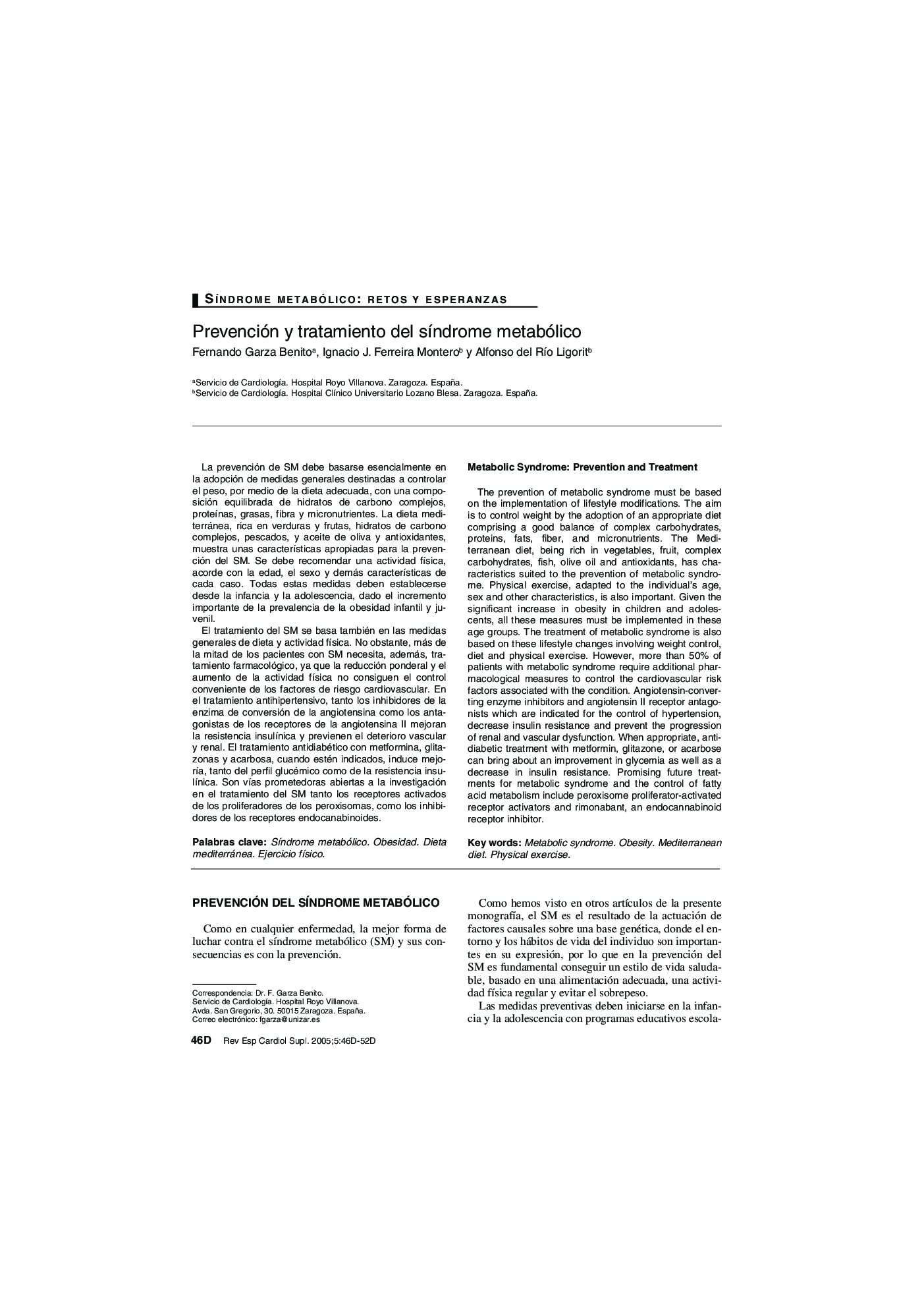| Article ID | Journal | Published Year | Pages | File Type |
|---|---|---|---|---|
| 9182270 | Revista Española de Cardiología Suplementos | 2005 | 7 Pages |
Abstract
The prevention of metabolic syndrome must be based on the implementation of lifestyle modifications. The aim is to control weight by the adoption of an appropriate diet comprising a good balance of complex carbohydrates, proteins, fats, fiber, and micronutrients. The Mediterranean diet, being rich in vegetables, fruit, complex carbohydrates, fish, olive oil and antioxidants, has characteristics suited to the prevention of metabolic syndrome. Physical exercise, adapted to the individual's age, sex and other characteristics, is also important. Given the significant increase in obesity in children and adolescents, all these measures must be implemented in these age groups. The treatment of metabolic syndrome is also based on these lifestyle changes involving weight control, diet and physical exercise. However, more than 50% of patients with metabolic syndrome require additional pharmacological measures to control the cardiovascular risk factors associated with the condition. Angiotensin-converting enzyme inhibitors and angiotensin II receptor antagonists which are indicated for the control of hypertension, decrease insulin resistance and prevent the progression of renal and vascular dysfunction. When appropriate, antidiabetic treatment with metformin, glitazone, or acarbose can bring about an improvement in glycemia as well as a decrease in insulin resistance. Promising future treatments for metabolic syndrome and the control of fatty acid metabolism include peroxisome proliferator-activated receptor activators and rimonabant, an endocannabinoid receptor inhibitor.
Keywords
Related Topics
Health Sciences
Medicine and Dentistry
Cardiology and Cardiovascular Medicine
Authors
Fernando Garza Benito, Ignacio J. Ferreira Montero, Alfonso del RÃo Ligorit,
